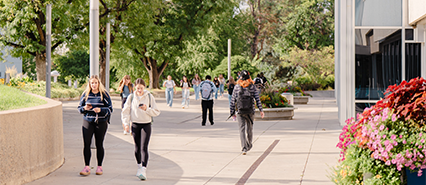Erika Twani on Enhancing Human Potential
Release Date: June 20, 2024

The ancient question of "What does it mean to be human?" has been pondered by philosophers and laypeople alike for centuries. But with the advent of generative AI like ChatGPT, that inquiry takes on new urgency and complexity. If an artificial system can match or exceed human capabilities in tasks like writing, analysis, and coding, where does that leave the unique value and essence of human intelligence and consciousness?
Erika Twani has grappled with this dichotomy as both a former software engineer and as the founder of the Learning One on One Foundation, which aims to help students "harness their curiosity" across subjects. With expertise in leveraging technology for educational purposes at Microsoft, Twani offers a compelling perspective on how AI could actually help elevate our humanity - if we learn to use it as an enhancing tool rather than a replacement for human cognition. In a frank discussion before her interactive talk at CSU Pueblo, Twani shares insights into the types of intelligences needed to adapt to revolutionary technologies like AI and what it means to be human.
CSU Pueblo: You've transitioned from guiding teachers and students to become lifelong learners, to now championing the role of AI in education. How do you reconcile those seemingly opposing viewpoints?
Ericka Twani: It has always been about skills development. Before ChatGPT launched, I already had two chapters of discussing AI in my book. If you read it, you will understand a lot about how the brain works. Experts predict tools like generative AI will achieve human-level intelligence in just 2-3 years. We can use AI to enhance our biological intelligence.
CSUP: That's a staggering prediction. How precisely could AI augment our biological human intelligence?
ET: We like to think of intelligence as just one thing, but it's really a convergence of multiple types. There's the raw cognitive horsepower of IQ for comprehending complex information. Then there's EQ, the emotional intelligence that separates good leaders and communicators from the mediocre ones. With AI handling more rote tasks, we can invest greater effort into developing a third core intelligence - adaptability quotient or AQ. This is the ability to continually reinvent one's skillset for new environments. AQ will be vital for thriving with AI.
CSUP: Tech and education leaders say AI's disruption could be like the Industrial Revolution. How can institutions like CSU Pueblo prepare students for the coming opportunities?
ET: Imagine what it must have been like when the industrial revolution started – people never knew how society would adopt to the changes. With ChatGPT's stunningly rapid adoption in just 5 days, compared to years for platforms like Netflix, Spotify, or Facebook, we're witnessing a pivotal shift happening before our eyes. This is not going away; it’s not a fad.
The other key signal is the blistering pace of new AI app development - hundreds per month. That means adaptability, the ability to constantly learn and re-learn, will be paramount. I advise schools like CSU Pueblo to prepare students on how to be lifelong learners. The average professional will change jobs 14 times, so developing that brainpower for continual reinvention is crucial. Learning how to learn is the best gift we can give students today.
AI frees us from repetitive grunt work, allowing us to focus on nurturing the adaptability quotient or "AQ" - in addition to IQ and EQ - that will set humans apart as we co-exist with AI.
CSUP: As a Hispanic-serving institution, do you see AI as a way for CSU Pueblo to help close achievement gaps?
ET: We need to re-examine why we call it an "achievement gap" in the first place. Why do we have achievement gap? Is it inherently about students' heritage or socioeconomic background causing gaps? Or is it a lack of quality K-12 preparation? Labeling it an "achievement gap" compares students to an arbitrary average, rather than their own progress over time.
AI gives us an opportunity to redesign that whole framework. With AI handling more busywork, we can have students from any background spend more time actively learning at their own pace, developing vital skills like AQ. The real gaps are often socioeconomic - AI can be an equalizing force by automating away some of those constraints.
CSUP: You make a good point about reassessing how we measure student achievement. But there are also concerns about AI making humans intellectually complacent or "stupider" by over-relying on it. What's your take?
ET: There will be people who will be more vulnerable to these kinds of issues that we already have with AI. There will inevitably be some people who lazily copy-paste AI outputs without applying critical thinking. The thinking is ‘this task is boring let’s just be done with it.’ But I believe many more will leverage AI as a supplemental tool to improve their work beyond that basic output.
The key is realizing that AI, no matter how advanced, still provides that structured, sterile result you'd expect from code following rules. It lacks the spark of inspired human ingenuity, emotional intelligence, and creativity. Viewing AI as a supportive aid rather than a substitution for our own capacities will allow us to create something greater by skillfully building upon and enhancing that AI foundation.
CSUP: That resonates. We don't want AI to dull our uniquely human traits, but rather amplify them by removing tedium. Humans are not the only species to use tools, but we are best at it from an applied intelligence perspective. How can we employ AI to be better people, which would lead back to the question of what does it mean to be human? And how can AI impact our humanity for better?
ET: Exactly - we've always sought tools and technology to make our work more efficient and our lives easier, from farm equipment to automobiles to software. AI is simply the next extension of that capacity, giving us more time and freeing up vital cognitive resources. A long time ago, horses moved us from point A to point B. Right? They’d spend days going from Pueblo to Denver, for example. Today, it take two hours.
Just think about what we could achieve if we weren't constantly fatigued and depleted by busywork, logistics, dry chores. We could finally unravel the mysteries of human consciousness that today's spiritual gurus and philosophers only preliminarily grasp. We could immerse ourselves fully in passion projects like music, art, and creative pursuits that stimulate our souls.
We could foster deeper emotional bonds and connections with loved ones over more quality shared experiences, instead of always being distracted. On a societal level, we could turn more brainpower toward solving humanity's grand challenges like curing disease, reversing climate change, achieving equality and ending conflict.
By offloading tedious tasks to AI assistance, we basically reclaim cognitive bandwidth to explore the very depths of our humanity - our consciousness, creativity, emotional richness, problem-solving skills. Those are the realms machines cannot replicate, which we can double down on in an AI-augmented world. That's how we don't just remain distinctly human, but become more fully actualized versions of our humanity.
There will be many unforeseen developments as AI rapidly advances in the coming years. What we can do as AI matches and potentially exceeds certain human cognitive skills through brain-implanted intelligence augmentation tools is consider what does it fundamentally mean to be human? While we don't have all the answers yet, we need to proactively adapt by cultivating the 'adaptability quotient' or AQ.
By nurturing that critical adaptability, we can thoughtfully harness AI's power to more fully realize our unique human potentials for creativity, emotional intelligence, and consciousness itself.
TEDx speaker, bestselling author Erika Twani holds an interactive talk on this topic, Wed. June 26 at CSU Pueblo. Session starts 6 p.m. at Life Sciences Auditorium with hors d'oeuvres 5:30-6 p.m.


